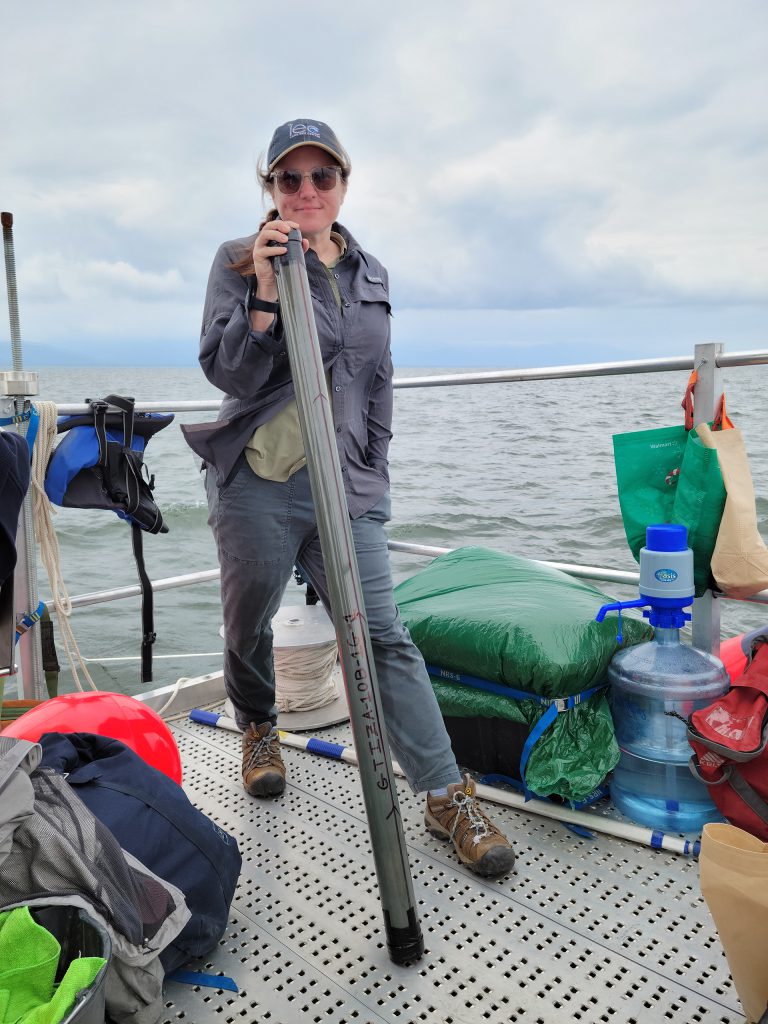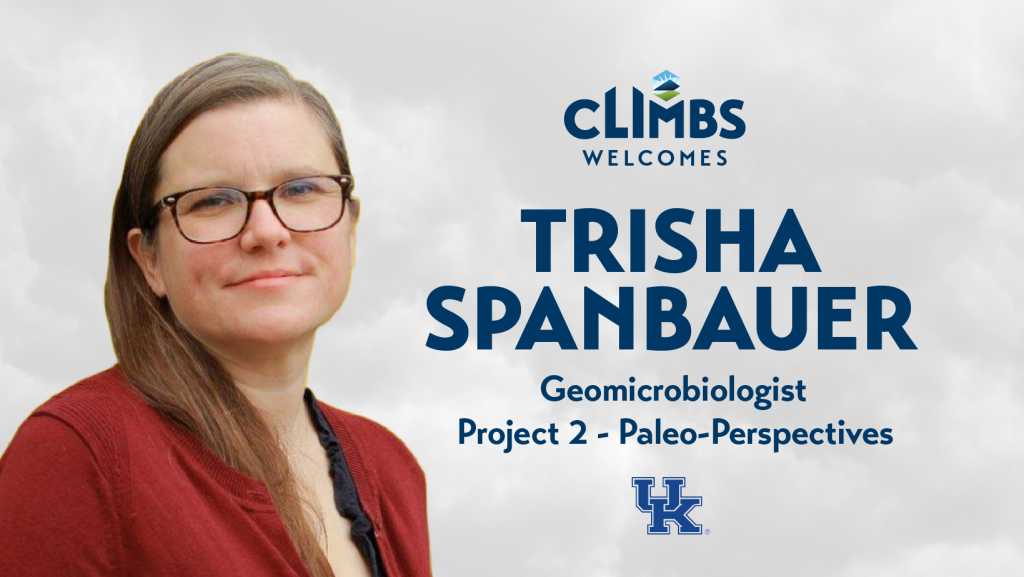As CLIMBS continues to build climate resilience in Kentucky, it also builds its faculty research capacity, with the goal of extending CLIMBS objectiv
es well beyond the five years of the initial project. Dr. Trisha Spanbauer, a new CLIMBS hire at the University of Kentucky with a sharp focus on Project 2, Paleo-Perspectives, is a tremendous addition to these CLIMBS capabilities, as she will work with colleagues across Kentucky to create simulations to forecast when and where major floods might hit next.
Spanbauer’s career path has crossed multiple disciplines, but she views herself primarily as a paleoecologist. Paleoecologists study long-term ecological and evolutionary processes using the sedimentary record. Spanbauer explains that because monitoring tools like gauges and sensors didn’t exist in the distant past, researchers turn to indirect measures: “We use proxies, which is just a word that means a stand in.” Those proxies can be as small as pollen grains or microfossils preserved in lake sediments, or as complex as emerging DNA biomarkers that reveal the biodiversity of past environments. By layering multiple proxies, she and her Project 2 colleagues seek to reconstruct past climates and ecological shifts that help inform future predictions.

“I’m really excited about it,” says Spanbauer. “Excited to get a fuller picture of what happened in the past, because often in the work I do, there are gaps in the information that just isn’t there with one proxy. So, using multiple proxies gives us context and a bigger picture of what was going on in this area hundreds to thousands of years ago.”
CLIMBS funding is assisting in the construction of an Ancient Environmental DNA lab, led by Spanbauer to be filled with UK Earth and Environmental Science students. This lab production, written into the proposals by colleagues and CLIMBS Co-PIs M.M. (Mike) McGlue and Ed Woolery, is a part of why Spanbauer was drawn to the project. The lab was also supported by the UK Office of the Vice President of Research, University of Kentucky, College of Arts and Sciences, and the Kentucky Geological Survey.
“Kentucky was attractive to me, in part, because of its investment in research infrastructure and commitment to growth,” says Spanbauer. “I think that having the foresight to invest in the lab capacity to do this kind of work is unique.”
Having a paleoecologist join the CLIMBS faculty was the idea from the proposal stages, and having Spanbauer join Project 2 is an incredible addition to an already productive team.
“Very few ancient environmental DNA laboratories exist in the United States – it is truly a cutting-edge set of techniques, says Mike McGlue. “We are excited to have Trisha join our faculty and bring her expertise to UK and the Department of Earth and Environmental Sciences. The ancient environmental DNA toolkit will help us unlock the recent geological history of Kentucky at sites like Big Bone Lick and Mammoth Cave, potentially with unprecedented detail.”
“The expertise Trisha introduces to campus offers novel perspectives that bridge geology and ecology, enabling our students to gain unique workforce readiness skills,” says Ed Woolery.
Above all, Spanbauer is energized by the opportunity to build a collaborative cohort of new hires, all focused on climate and environmental research from varied disciplines.
“I’m super excited to integrate with individuals where I get to learn from them and where we get to collaborate on problems that are crosscutting many different disciplines but also have applicability not only here in the Commonwealth, but also globally,” says Spanbauer.
Looking forward, Spanbauer is optimistic that her lab will generate unique datasets for CLIMBS and beyond. By combining paleoecology with the other CLIMBS’ objectives, her work aims to bridge the past and present. It’s a perspective that makes her not only an innovator in paleoecology, but also a crucial voice in CLIMBS’ mission to build climate resilience and protect our communities in the future.





